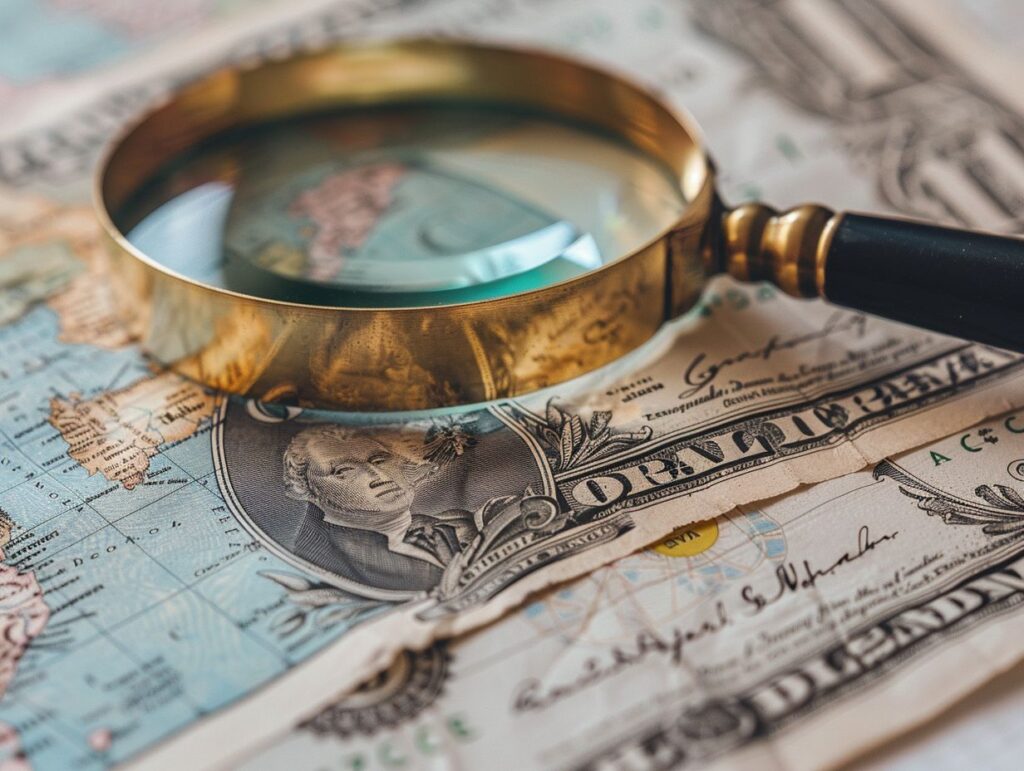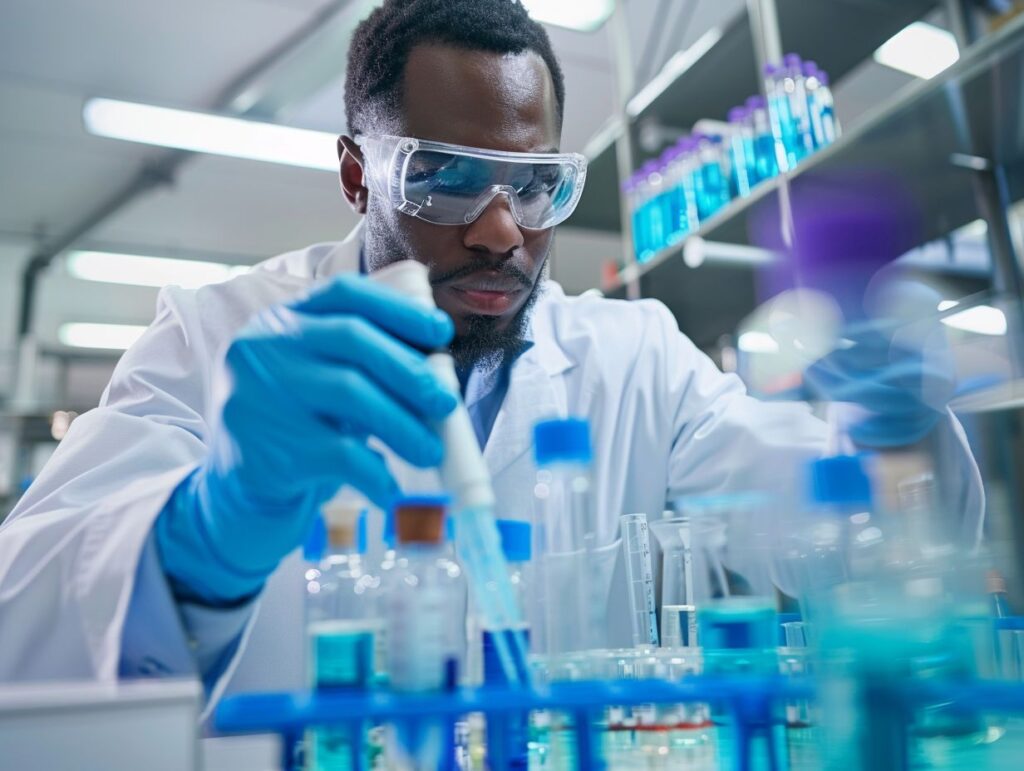Counterfeiting is a serious issue that affects businesses and consumers alike. In Florida, this problem is particularly prevalent, leading to both economic and legal consequences.
We will explore the different types of counterfeiting, the legal penalties in Florida, and the steps individuals and businesses can take to combat this issue.
Learn how to recognize counterfeit goods, report suspicious activity, and protect yourself and your community against counterfeit products.
Key Takeaways:

- Counterfeiting is a serious problem in Florida with severe legal and economic consequences.
- Businesses and individuals can play a role in combating counterfeiting by knowing the signs, reporting suspected cases, and taking precautions when purchasing goods.
- Laws and regulations, as well as law enforcement agencies, are in place in Florida to address counterfeiting, and it is important to gather evidence and report suspected cases to help combat this issue.
What is Counterfeiting?
Counterfeiting is the unauthorized imitation of genuine products, often involving the illegal use of trademarks, to deceive consumers into believing they are purchasing authentic goods. This practice is a significant issue in the United States and globally, leading to substantial economic losses and posing various legal and criminal challenges.
What are the Different Types of Counterfeiting?
There are various types of counterfeiting, such as the production of counterfeit goods, trademark infringement, and the use of fake domain names online.
Counterfeiting goes beyond physical goods and trademarks. Another form is online piracy, where digital content like music, movies, and software is unlawfully copied and distributed. This type of counterfeiting not only impacts copyright holders but also poses risks to consumers who may unintentionally download harmful or substandard versions of the original products.
The emergence of e-commerce platforms has facilitated counterfeiters in reaching a broader audience, creating challenges for brand protection and enforcement agencies in monitoring and halting these illicit activities.
Why is Counterfeiting a Problem in Florida?
Counterfeiting poses a significant challenge in Florida due to its sizable consumer market, high trade volume, and thriving tourism industry, making it a prime target for counterfeit activities.
Florida’s bustling ports and international airports act as entry points for goods into the United States, creating ample opportunities for counterfeit products to enter the market. The state’s diverse array of industries, ranging from luxury fashion and electronics to pharmaceuticals and automotive parts, exacerbates the problem.
Law enforcement agencies in Florida, such as the Florida Department of Law Enforcement and local police departments, are instrumental in combating counterfeiting through investigations, raids, and prosecutions aimed at dismantling counterfeit operations.
What are the Consequences of Counterfeiting?
The consequences of counterfeiting are varied, impacting not only the economy but also trademark owners and consumers, resulting in legal disputes and potential criminal charges.
What are the Legal Penalties for Counterfeiting in Florida?
In Florida, the legal consequences for counterfeiting can involve fines, imprisonment, and civil actions such as cease and desist orders.
Counterfeiting is treated seriously in Florida, with individuals found guilty facing fines of up to thousands of dollars and potential imprisonment. Along with criminal penalties, trademark owners can also pursue civil actions against counterfeiters.
Trademark owners have the option to send cease and desist orders to infringing parties, instructing them to halt the production or sale of counterfeit goods. Non-compliance with these orders can lead to further legal actions, including lawsuits seeking damages resulting from the infringement. This combined approach of criminal prosecution and civil action is aimed at effectively combating counterfeiting.
What are the Economic Consequences of Counterfeiting?
The economic impact of counterfeiting is significant, resulting in substantial financial losses for trademark owners and potential harm to the overall economy. Counterfeit goods not only damage the reputation and integrity of legitimate businesses but also lead to direct revenue losses and increased expenses for brand protection and legal proceedings.
When assessing the damages from counterfeiting, factors like lost sales, reduced market share, and missed licensing opportunities are considered.
The repercussions extend beyond individual businesses, causing widespread job cuts, diminished tax revenues for governments, and a drag on overall economic development. These illegal activities can disrupt supply chains, discourage foreign investments, and create an atmosphere of mistrust in the market.
How Can Counterfeiting be Detected?
Identifying counterfeiting entails utilizing a range of methods and tools to spot counterfeit goods and confirm the legitimacy of products. This process typically necessitates a comprehensive examination conducted by trained professionals.
What are the Signs of Counterfeit Goods?
Indicators of counterfeit goods may include substandard quality, misspelled brand names, and inconsistencies in packaging and labeling. Consumers and investigators can also observe unusual pricing, such as significantly lower prices compared to the market value, as counterfeit products are often competitively priced to attract buyers. Discrepancies in product details, like logos, fonts, and colors, can also raise suspicion.
For instance, authentic designer handbags typically exhibit precise stitching and high-quality materials, whereas counterfeit versions may feature uneven stitching and inferior materials.
To authenticate products, consumers can verify serial numbers, holographic stickers, and purchase items directly from authorized retailers or official websites.
How Can Businesses Protect Themselves Against Counterfeiting?
Businesses can safeguard themselves against counterfeiting by deploying advanced technologies, securing their trademark rights, and performing routine market surveillance.
- Implementing technologies like blockchain or RFID can aid in tracing and verifying products throughout the supply chain, increasing the difficulty for counterfeiters to duplicate.
- Moreover, registering trademarks with pertinent government agencies and actively upholding those rights through legal means can act as a deterrent.
- Consistently monitoring the market for counterfeit products enables businesses to detect and address unauthorized items, safeguarding their brand reputation and consumer trust.
How Can Counterfeiting be Addressed in Florida?
Addressing counterfeiting in Florida necessitates a comprehensive approach that includes strict laws and regulations, active participation by law enforcement agencies, and coordinated enforcement actions.
What Laws and Regulations are in Place to Combat Counterfeiting in Florida?
In Florida, various laws and regulations have been put in place to address counterfeiting, with a focus on implementing anti-counterfeiting measures and safeguarding intellectual property rights.
These measures encompass the Florida Anti-Counterfeiting Enforcement (FACE) Act, which makes it illegal to manufacture, sell, or distribute counterfeit goods. Additionally, the Florida Deceptive and Unfair Trade Practices Act offers businesses a legal framework to combat counterfeit activities.
Through the enforcement of these laws, Florida is working to protect the rights of creators and innovators, aiming to deter counterfeit actions and prevent unauthorized use or fraudulent imitation of intellectual property.
What Role do Law Enforcement Agencies Play in Combating Counterfeiting?
Law enforcement agencies have a significant role in combating counterfeiting through various activities such as investigations, law enforcement, and enforcement actions against counterfeiters. They dedicate efforts to identify and dismantle counterfeit operations, confiscating fake goods, and disrupting illicit networks.
For instance, a successful enforcement action involved a joint task force of local police, the FBI, and customs authorities that broke up a major counterfeit designer handbag ring.
This collaboration illustrates the importance of agencies cooperating to effectively combat counterfeiting. By sharing intelligence and resources, law enforcement can enhance consumer protection and safeguard legitimate businesses from the negative impacts of counterfeit products.
What Can Individuals and Businesses Do to Help Address Counterfeiting?
Individuals and businesses have a crucial role in addressing counterfeiting by raising awareness, remaining vigilant, and reporting suspected counterfeit activities. One proactive step that can be taken is to educate employees and customers about the signs of counterfeit products.
Encouraging the use of authentication tools and verifying the legitimacy of suppliers can also aid in combating counterfeit activities. Setting up internal processes for reporting and investigating any suspected instances of counterfeiting is crucial. Collaboration with law enforcement and industry organizations can enhance efforts to combat this illicit trade.
What are the Steps to Take if You Suspect Counterfeiting?
In case counterfeiting is suspected, it is essential to promptly take action to report the activity and collect evidence to substantiate the claim.
How Can You Report Counterfeiting in Florida?
In Florida, individuals have the option to report instances of counterfeiting to local law enforcement agencies or federal entities like the National Intellectual Property Rights Coordination Centre (National IPR Centre).
When reporting suspected counterfeit activities, it is important to provide detailed information to support the authorities in their investigations. This information should include details such as the location, time, and characteristics of the counterfeit goods. To report counterfeit activities effectively, individuals can contact their local police department or reach out to the National IPR Centre.
Additionally, individuals can utilize the United States Department of Justice’s Anti-Counterfeiting Task Force to report cases of counterfeit products. Collaborating with these organizations allows the community to play a significant role in combating counterfeiting and safeguarding intellectual property rights.
What Evidence Should You Gather if You Suspect Counterfeiting?
It is important to gather evidence if there is suspicion of counterfeiting. This includes obtaining samples of the counterfeit goods, keeping records of transactions, and documenting any discrepancies.
When collecting evidence related to counterfeiting, it is essential to secure any packaging materials, labels, or tags that may be unique to the counterfeit products.
Taking detailed photographs or videos of the suspected counterfeit items from various angles can help capture any distinguishing features. It is also crucial to maintain a chain of custody by properly labeling and storing the evidence to enhance its validity in legal proceedings.
Consulting with legal experts or law enforcement on the proper procedures for handling and preserving evidence is advisable to ensure its admissibility and effectiveness in supporting the case.
How Can You Protect Yourself Against Purchasing Counterfeit Goods?
Protecting oneself against purchasing counterfeit goods entails understanding warning signs and taking necessary precautions to verify the authenticity of products.
What are the Warning Signs of Counterfeit Goods?
Identifying counterfeit goods involves recognizing key indicators like remarkably low prices, subpar quality, and discrepancies in packaging or labeling compared to the authentic product.
Another typical red flag to be mindful of is the absence of proper trademarks or serial numbers. When a product is sold through unauthorized channels or seems to be crafted from inferior materials, these are warning signs that it could be counterfeit.
To authenticate a product, consumers should engage in comprehensive research on the brand’s official website, look for holograms or unique seals, and procure items exclusively from trustworthy retailers or directly from the manufacturer.
What Precautions Can You Take to Avoid Purchasing Counterfeit Goods?
For avoid purchasing counterfeit goods, individuals should take precautions such as buying from reputable retailers, verifying the authenticity of products, and being cautious of deals that appear too good to be true.
One practical tip to consider is always checking the packaging and labels of the product for any signs of tampering or inconsistencies. Researching the product and its typical pricing can help in identifying if the deal offered is unrealistic.
Another important step is to look for holographic stickers, serial numbers, or other unique markers that are commonly present on authentic items. It is also advisable to avoid purchasing from unauthorized online stores or suspicious websites.
By following these guidelines, consumers can reduce the risk of falling victim to counterfeit product scams.
Frequently Asked Questions
What is counterfeiting and why is it a problem in Florida?
Counterfeiting is the act of producing or selling fraudulent or imitation goods with the intention of deceiving consumers. It is a problem in Florida because it not only harms legitimate businesses, but also puts consumers at risk of purchasing unsafe or poor quality products.
What is the penalty for counterfeiting in Florida?
The penalty for counterfeiting in Florida depends on the value of the goods involved. It can range from a misdemeanor with a maximum penalty of one year in jail and a $1,000 fine for goods valued under $20,000, to a felony with a maximum penalty of 30 years in prison and a $10,000 fine for goods valued over $100,000.
How can I report suspected counterfeit goods in Florida?
If you suspect that you have purchased or come across counterfeit goods in Florida, you can report it to the Florida Department of Agriculture and Consumer Services by filing a complaint online or by calling their toll-free hotline at 1-800-HELP-FLA.
What can businesses do to protect themselves from counterfeiting in Florida?
Businesses in Florida can protect themselves from counterfeiting by registering their trademarks with the Florida Department of State and monitoring the market for fraudulent or imitation goods. It is also important to educate employees and consumers about the issue and how to spot counterfeit goods.
Can I face legal consequences for unknowingly purchasing counterfeit goods in Florida?
No, as a consumer, you cannot face legal consequences for unknowingly purchasing counterfeit goods. However, it is important to be cautious when purchasing goods at a significantly discounted price or from unfamiliar sources in order to avoid purchasing counterfeit products.
How can I stay informed about counterfeiting in Florida?
You can stay informed about counterfeiting in Florida by following news and updates from the Florida Department of Agriculture and Consumer Services, as well as staying updated on the latest scams and consumer protection information from the Florida Attorney General’s Office.


























Rate this article:
Average rating 0 / 5. Vote count: 0
No votes so far! Be the first to rate this post.
No Comments yet!